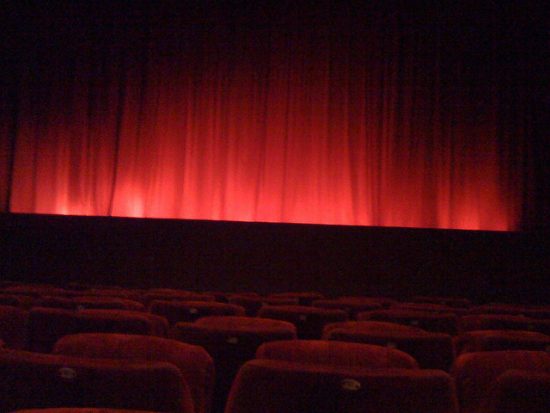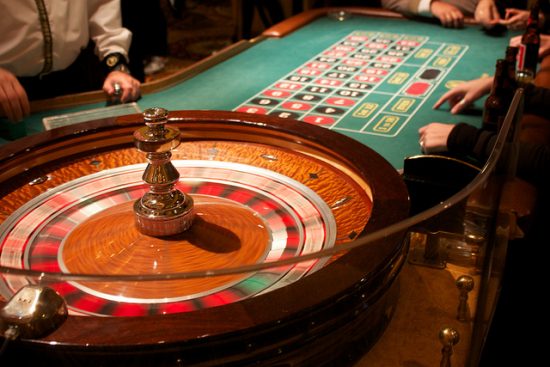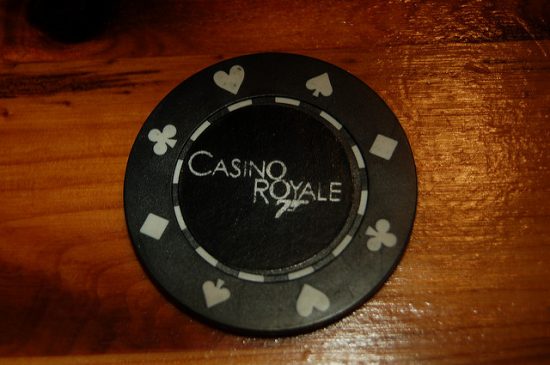Roulette and the curious art of scene-setting in the movies
Legend has it that the first time a film reel showed footage of an oncoming train, theatregoers made a run for the exits in fear of being crushed beneath its wheels.
Legend is not always reliable, but the essential point holds: cinema works as a medium because it elicits a similar spectrum of emotional responses as the subject matter it attempts to portray. Or to put it more plainly, movies pull upon the heartstrings of their audience. It’s why we go watch them.
Screenwriters dress each scene as carefully as the costume department, and arrange the onscreen action with the eye of a director. The story unfolds through depicted scenes that flow together to create settings in which narrative embeds. When it’s done well, we hardly notice the doing, it makes as little impact upon our perceptions as a soft footfall upon a plush carpet. Yes to characters, yes to snappy dialog, but behind these staples lies another, less addressed perhaps, but worthy of a closer look. There’s an inherent difficulty in trying to capture the worthiness of scene setting as a movie-making art in and of itself, but it may help to take a single example and chart its usefulness to filmmakers across a number of movies, to sift the patterns that emerge.
The game of roulette, as played at casinos both live and virtual the world over, serves here as our working example, for the sake of familiarity and ubiquity and for when a passing touch of elegance is called for in a movie, the muted suavity of the roulette table seems to be the go-to theme, and it works cinematically for a number of reasons.
The enduring popularity of online roulette points to a wider cultural symbolism at play. It is enough to see the variety of roulette games from 32Red where players can choose between 6 variants and even play live games with a real dealer, or the fact that even popular culture has rubbed off on the game, with a Deal or No Deal roulette game fashioned off the TV show available at 777. Roulette played live at a 32Red gaming table or as a virtual simulation on a handheld device or home PC holds a peculiar fascination for us, which could be down in part to the glittered spin of the wheel itself. The game conveys all kinds of contextual shorthand that the cinema audience can digest and assimilate at a level somewhere below conscious thought – that level where language and object bump one against the other.
It’s almost like a sensory Rorschach test; I say “roulette” and you think baize and felt and trimmings of varnished wood, tuxedoed men and glamorously beautiful women in evening dress. The one word conjures a blur of images and impressions. There’s the gentle lilt of continental accents, the clatter of the spinning wheel, the hushed sighs of the crowd in thrall to that little rattling ball.
Games of chance seem to have a mesmeric effect upon watchers and participants alike. Little wonder then that it is a trope much used in cinema, a swift and easy route to setting a scene.
Whether the camera merely pans past the table action in the manner of Scorsese’s establishing shots in Casino, or lingers momentarily at different tables to sample the outcome vis-à-vis American Hustle, the effect has been achieved – scenic elements of suspense and “sophistication” have entered the film as a backdrop to whatever narrative is unfolding in the foreground. The story takes on the mantle of the scenes it passes through. Here, roulette has added another layer, just a dab of colour along the way, something else to fold into the mix.
Ambience is one thing, but there’s a purely mechanical function too. As a visual metaphor, the presentation of roulette is a signifier for risk, for those tense moments poised between diametric outcomes. That’s probably why the game turns up in so many Bond movies – it adds to the edginess of the role to set him in a world of casinos and exotic hotels. It is hard to resist the urge to hold one’s breath when confronted with a scene of a wager that hangs in the balance, hard again not to release it in a whoosh of relief when the outcome has fallen and the suspense abated. This is a visceral response, film has dragged it from you, in much the same way that a horror flick might seek to make you jump at the scary bits or a romance can bring a sudden tear to the eye.
Of course, dragged seems a strong term for it – no-one strapped you into that seat, and even that popcorn tub isn’t enough to keep you there should you really wish to leave. Cinema is entirely consensual; we let it affect us, by engaging with it as a medium. We cross that threshold willingly, but when the lights go down and the curtain lifts, we are all of us in the hands of the scene setters and storytellers.
Images by Akyan, Stuart-Buchanan, Max Warren












